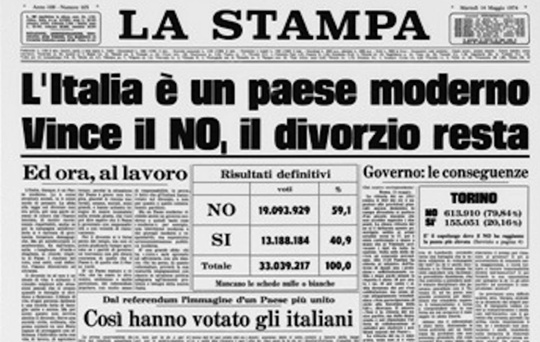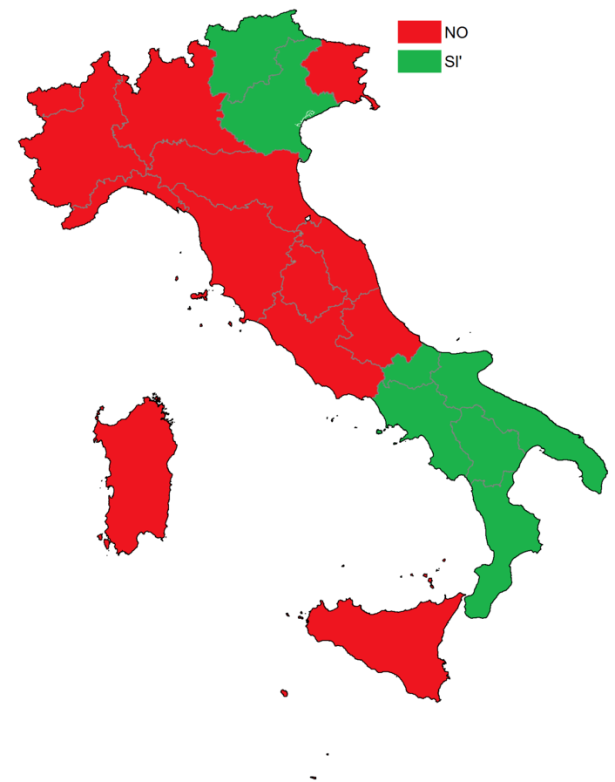As we know, Eurovision often mixes with politics and historical events, especially when it’s about two countries with bad relationships, for example Russia and Ukraine or Armenia and Azerbaijan. However, sometimes the internal situation of even just one country may cause some controversies, and Italy makes no exception.
The majority of Eurofans probably knows Gigliola Cinquetti, the first Italian singer to win the contest in 1964 with Non ho l’età (per amarti). Ten years later, she went to the Eurovision stage again and sang Sì. An innocent title, which just means Yes. She placed 2th, while Swedish group ABBA won with the worldwide hit Waterloo.
Italian broadcaster, RAI, decided not to televise Eurovision 1974 final live and they postponed it. Eurovision final was held on 6th April, but RAI broadcasted it a month later, after 12th May. This wasn’t just a casuality. It was pure made in Italy censorship. But why did this happen?
THE REFERENDUM:
12th May 1974 is an important date in Italian history. As a matter of fact, divorce had been introduced in 1970 and in 1974 a referendum was held in order to decide whether to repeal the divorce law or not. In this case, a Yes or No could make the difference.
“Do you want the Law of 1 December 1970, No. 898, on the regulation of cases of dissolution of marriage, to be abrogated?” was the question for Italian voters. Christian Democrats and neo-fascist party Italian Social Movement wanted a yes, while the Italian Socialist Party, the Italian Communist Party and the Italian Radical Party campaigned for a No.
Gigliola Cinquetti’s Eurovision song Sì was therefore considered a “subliminal message” and a sort of propaganda to influence Italians voting for the referendum. Moreover, the song was censored by radios and televisions in Italy.
In the end, No won with 59,26%, so divorce was still legal and it still is nowadays. Here’s Italian newspaper La Stampa, with an article on the referedum. The title means “Italy is a modern state. NO wins, divorce remains”.

Here’s a map with Italian regions and Yes/No majorities:

I found this connection between a Eurovision song and a referendum quite interesting and I was really surprised when I learned about this matter. Was that “Yes, I said yes” a subliminal message? Who knows. I think it wasn’t. Moreover, I think that Gigliola Cinquetti’s entries are among the best we have ever sent in Eurovision history.
